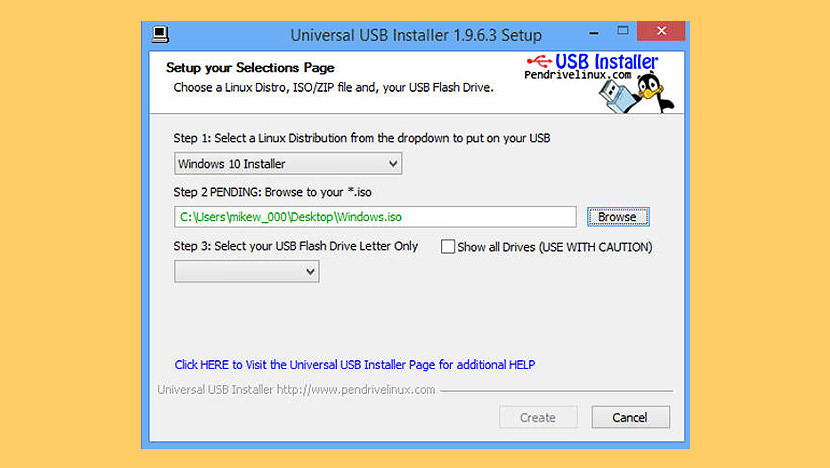Here’s how to download a Windows 10 ISO tool and do just that. A Linux boot on the 32gb drive, and a windows boot on the other drive. Of disks but I’m concerned that my recovery disk.
Windows 10 April 2018 Update: Here's what you can expect
Microsoft Windows 10 Boot Disk
Every time Microsoft releases a new feature update for Windows 10, you should build a new recovery drive containing the setup files for that update. You can use that drive to repair a damaged installation or to reinstall Windows on a new PC.
You can use the Media Creation Tool to create a bootable USB flash drive, as I describe in my installation FAQ. But I recommend a slightly different approach: Use the option to download the Windows 10 installer as an ISO file, and then use that file to make bootable installation media.
After the download is complete, you can double-click the ISO file to mount it as a virtual DVD drive and run Setup directly from the mounted drive. From that same File Explorer window, you can also create bootable Windows 10 installation media on a USB flash drive.
In addition to the ISO file, you also need a USB flash drive at least 8 GB in size. This process will delete all data on the USB drive, so back up any important files before proceeding. Then follow these steps:
- Plug the USB flash drive into your PC and use the Recovery Media Creator tool create Windows 10 recovery drive. (The easiest way to find this tool is to type Create a recovery drive in the search box on the taskbar, then click the shortcut from the search results. For full details, see 'Windows 10 tip: Create a recovery drive.')
- Open File Explorer and double-click the recovery drive you just created to open its contents in a window.
- Open a second File Explorer window, locate the Windows 10 ISO file you downloaded, and double-click to mount it as a virtual drive.
- Position the two File Explorer windows side by side and drag the full contents of the mounted drive to your USB flash drive. Choose the option to overwrite all existing files.
Label the drive (including the version number) and keep it in a safe place.
PREVIOUS AND RELATED CONTENT
Need more details about the right way to do a clean Windows 10 install? See these previous articles:
FAQ
Questions about installing and activating Windows 10? Here's what you need to know before you dive in.
If your Windows 10 PC is operating perfectly right now, great. Take advantage of the opportunity to create a recovery drive so you have a way to perform repairs if something ever goes wrong.
You've just upgraded to the most recent version of Windows 10. Before you get back to work, use this checklist to ensure that your privacy and security settings are correct and that you've cut annoyances to a bare minimum.
Here's everything you need to know before you repair, reinstall, or upgrade Windows 10, including details about activation and product keys.
Performing a clean install or a reset means you have to reinstall apps and desktop programs and start over with settings and preferences. If you suspect Windows has become damaged, there's a less drastic solution: Run Setup to repair Windows. Here's how.
Related Topics:
Enterprise Software Microsoft Windows PCs ReviewsWindows 10 Recovery Tools - Bootable PE Rescue Disk
Windows 10 Boot Disk Iso Download
Created a Custom Windows 10 Recovery Tools and Bootable Rescue Disk in ISO formatBased on the Win10PESE project found on TheOven.org - Thanks to those that contributed..
It allows you access to any non-working system and provides you a visual means to repair that system.
You would have to download the ISO and then burn it to USB or CD to create a bootable WinPE disk.
ADDED OPTION >> Win10XPE - Build Your Own Rescue Media - Windows 10 Forums
WARNING !! - Do Not Use ISO's Downloaded From MajorGeeks Because They Have Been Tampered With
Win14393PESE_x86 ISO v170116
Win14393PESE_x64 ISO v170116

I can:
Enter the standard Windows 10 recovery environment from within Windows 10.
Boot the computer from the normal SSD and pick Kyhi's Recovery Tools to boot into.
Enter UEFI boot override and boot directly from the custom recovery partition on the second HDD into Kyhi's recovery tools.
Once in Kyhi's recovery tools I can do a clean install of Windows 10 or I can run Macrium Reflect and restore the backup image to my SSD.

Installing Win 10 x64 using a flash memory - Page 2 - Windows 10 Forums
and Rufus instructions are in Option 2 of this tutorial, but refer there, of course, to a Win 10 iso.
Create Bootable USB Flash Drive to Install Windows 10 | Tutorials
How to add Recovery Media as Bootable Option To HDD
1) Create a FAT32 > 2GB - 32GB < Partition at the end of your drive
Windows 10 Boot Disk Iso Download Pc
2) Mount ISO and Copy the contents (Files) from the Rescue Media ISO to FAT32 partition
3) Download and Extract PESE_BootMenu_Option.7z
4) Run Proper Batch File (MBR or UEFI) to add the FAT32 Bootable Partition to your host Boot Menu Options
Batch File will ask for partition 'Drive Letter'
Batch File will ask you to type a 'Name' for the Boot Menu Entry
Batch File will ask you if you want to Display 'Metro Boot Menu'
Note: Batch just runs simple windows bcdedit commands to add the boot menu option....
Older WinPESE Versions:
Win10586PESE_x86 ISO v160125
Win10586PESE_x86 ISO v160707
Windows 10 Boot Disk Iso Download
Win10586PESE_x64 ISO v160125